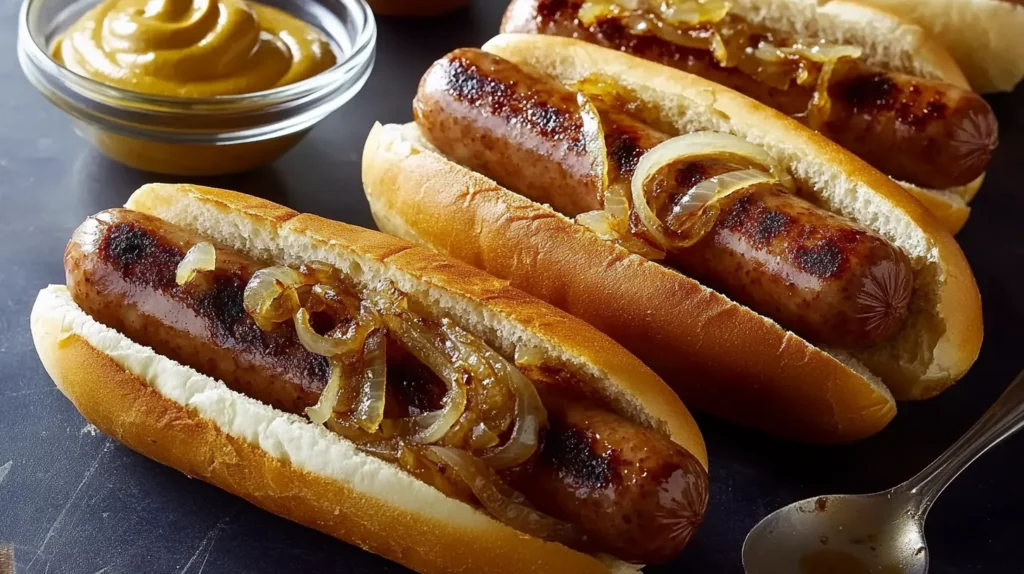Camping is an exciting way to escape into nature, but when you’re heading on a trip without access to a fridge or cooler, choosing the right food becomes essential. Whether you’re backpacking in the wilderness, camping in remote areas, or simply want to avoid the hassle of refrigeration, there are plenty of nutritious, long-lasting, and easy-to-prepare foods that don’t require cooling.
From non-perishable snacks and protein-packed meals to fresh produce that lasts without refrigeration, this guide covers the Good Food for Camping Without a Fridge ideas to keep you energized and satisfied on your adventure.
Good Food for Camping Without a Fridge
Why Choose Good Food for Camping Without a Fridge?
Packing no-fridge foods has several benefits:
- No cooler needed – Reduces extra weight and hassle.
- Long shelf life – Food stays fresh for days or weeks.
- Less food waste – No risk of spoilage.
- Lightweight options available – Ideal for backpacking trips.
How to Store Food Properly Without a Fridge
Even without refrigeration, proper food storage is key:
- Use airtight containers to prevent moisture and pests.
- Store food in a cool, dry place, such as a shaded tent or food bag.
- Rotate your food supply – Eat perishables first, save dry goods for later.
Best Non-Perishable Foods for Camping
When camping without a fridge, it is essential to pack shelf-stable foods that will not spoil. Below are some of the best non-perishable food options to keep you energized during your trip.
Dry Foods (Lightweight and Long-Lasting)
Dry foods are an excellent choice because they are lightweight, have a long shelf life, and are easy to prepare.
- Oats are perfect for quick breakfasts and energy-packed meals.
- Rice and pasta are great for hearty dinners, with instant or pre-cooked varieties offering faster cooking times.
- Couscous and quinoa serve as quick-cooking alternatives to rice.
- Powdered milk and dairy alternatives can be mixed with water for coffee, cereal, or protein shakes.
- Dried fruit makes for a great snack or an addition to oatmeal.
Canned Foods (Protein and Convenience)
Canned goods provide essential nutrients and protein without requiring refrigeration.
- Canned tuna, chicken, or salmon are great for wraps, salads, or sandwiches.
- Canned beans such as black beans, chickpeas, and lentils offer an easy protein source for soups, stews, or tacos.
- Canned vegetables like corn, peas, carrots, and tomatoes can be added to pasta or one-pot meals.
- Coconut milk is useful for making curries or creamy dishes.
- Canned soups and stews offer a quick and easy dinner option.
Freeze-Dried and Dehydrated Foods
These foods are lightweight, require no refrigeration, and have long shelf lives, making them ideal for backpacking and extended camping trips.
- Freeze-dried meals come pre-packaged and only require hot water for preparation.
- Dehydrated vegetables can be added to soups and pasta dishes.
- Instant mashed potatoes provide a lightweight and filling side dish.
- Powdered eggs are useful for breakfast or adding protein to meals.
Good Food for Camping Without a Fridge with High-Protein
When camping, maintaining energy levels is essential, and protein plays a crucial role in keeping you fueled for outdoor activities. Without access to refrigeration, choosing shelf-stable protein sources is key. Here are some of the best high-protein options for a no-fridge camping trip.
Nuts and Seeds
Nuts and seeds are packed with protein, healthy fats, and essential nutrients, making them a great source of long-lasting energy.
- Almonds, cashews, and peanuts provide a high-calorie, protein-rich snack.
- Pumpkin and sunflower seeds are lightweight and full of fiber.
- Peanut butter and almond butter serve as excellent spreads for crackers or tortillas.
Jerky and Meat Alternatives
Dried meats and plant-based alternatives offer a protein-packed, no-cook food source that is convenient for camping.
- Beef jerky and turkey jerky are long-lasting, portable options with high protein content.
- Salami and summer sausage do not require refrigeration for a few days and can be paired with crackers or bread.
- Tofu jerky serves as a plant-based protein alternative with a chewy, flavorful texture.
Canned Meat and Fish
Canned proteins are an easy way to add variety to meals without the need for refrigeration.
- Canned tuna and salmon can be eaten with crackers or added to salads.
- Canned chicken pairs well with instant rice or pasta for a simple meal.
- Sardines and mackerel offer a nutrient-dense option with omega-3 fatty acids.
Powdered Protein Sources
For those looking to increase their protein intake while keeping their load light, powdered options provide a simple and effective solution.
- Protein powder can be mixed with water for a quick and easy shake.
- Powdered peanut butter offers a lightweight alternative to traditional peanut butter and can be added to oatmeal or smoothies.
Fresh Good Food for Camping Without a Fridge
Even without a fridge, certain fresh foods can remain safe to eat for several days or even weeks when stored properly. These options provide essential nutrients and can add variety to camping meals.
Hardy Vegetables
Some vegetables have a long shelf life and can be used in various camping meals without requiring refrigeration.
- Carrots can last over a week and are great for snacks or cooking.
- Potatoes and sweet potatoes are excellent for foil packet meals or skillet cooking.
- Onions and garlic are essential for flavoring meals and can be stored in a dry, ventilated space.
- Bell peppers and zucchini can last several days and are great for grilling or stir-frying.
Fruits That Stay Fresh Longer
Certain fruits are more durable and can withstand camping conditions without spoiling quickly.
- Apples and oranges have a long shelf life and make for easy, refreshing snacks.
- Bananas should be eaten within a few days as they ripen quickly.
- Dried fruits such as raisins, apricots, and cranberries provide a lightweight and nutritious alternative to fresh fruit.
Shelf-Stable Dairy Alternatives
While traditional dairy products require refrigeration, some alternatives can last without cooling.
- Powdered milk can be mixed with water for coffee, cereal, or protein shakes.
- Hard cheeses like parmesan and aged cheddar can last for several days without refrigeration if stored in wax paper.
- Shelf-stable plant-based milk, such as almond or soy milk, is available in single-serving cartons.
Best Carbohydrates for Energy on a No-Fridge Camping Trip
Carbohydrates provide the body with sustained energy, making them essential for camping trips that involve hiking and other outdoor activities. Without refrigeration, choosing shelf-stable options that are easy to store and prepare is key.
Whole Grain Options
Whole grains are rich in fiber and nutrients, making them a great source of long-lasting energy.
- Oats can be used for quick breakfasts, energy bars, or even savory dishes.
- Quinoa is a protein-rich grain that cooks quickly and pairs well with canned or dried ingredients.
- Whole grain bread or crackers provide a sturdy base for spreads, canned fish, or nut butter.
Pasta and Rice
Both pasta and rice are excellent for preparing filling meals with minimal effort.
- Instant rice cooks quickly and can be mixed with canned beans, vegetables, or sauces.
- Whole wheat pasta is a great source of complex carbohydrates and works well with no-refrigeration sauces.
- Couscous is an ideal camping grain since it requires only boiling water for preparation.
Crackers and Tortillas
Crackers and tortillas are versatile carbohydrate sources that do not require refrigeration and can be used for various meals.
- Whole grain crackers pair well with cheese, nut butter, or canned tuna.
- Tortillas are durable, lightweight, and perfect for wraps, quesadillas, or as a side for meals.
Easy and Delicious Good Food for Camping Without a Fridge
When camping without refrigeration, it is important to have simple, nutritious, and filling meal options. These no-fridge camping meal ideas require minimal preparation and use only shelf-stable ingredients.

Breakfast Ideas
A good camping breakfast should be quick to prepare, energy-boosting, and easy to pack.
- Oatmeal with Nuts and Dried Fruit – Instant oats can be cooked with hot water and topped with nuts, seeds, and dried fruit for extra flavor and nutrients.
- Peanut Butter and Banana Wraps – Whole grain tortillas with peanut butter and banana slices offer a high-energy, protein-rich start to the day.
- Granola with Powdered Milk – Pre-packaged granola combined with powdered milk or shelf-stable plant-based milk is an easy, no-cook breakfast.
- Energy Bars and Trail Mix – Pre-made granola bars or homemade trail mix with nuts, seeds, and dried fruit provide a quick, nutrient-dense meal.
Lunch Ideas
For lunchtime, meals should be light, easy to assemble, and require no refrigeration.
- Tuna and Crackers – Canned tuna paired with whole grain crackers provides a protein-packed, ready-to-eat meal.
- Hummus and Vegetable Wraps – Shelf-stable hummus, whole wheat tortillas, and long-lasting vegetables like carrots or bell peppers make for a nutritious lunch.
- Nut Butter Sandwiches – Peanut butter or almond butter on whole grain bread or crackers is a simple and filling option.
- Instant Couscous with Canned Beans – Couscous cooks quickly with hot water and can be mixed with canned beans for a balanced meal.
Dinner Ideas
Dinner meals should be hearty, satisfying, and easy to prepare after a long day outdoors.
- Dehydrated Soup with Crackers – Instant soup packets or dehydrated vegetable soups provide a warm and comforting meal.
- One-Pot Pasta with Canned Sauce – Pasta cooked over a campfire or portable stove with canned tomato sauce and dried herbs is a simple and delicious dinner.
- Instant Rice with Canned Vegetables and Tuna – A quick meal using instant rice, canned vegetables, and a protein source like canned tuna or chicken.
- Foil Packets with Potatoes and Beans – Sliced potatoes, canned beans, and spices wrapped in foil and cooked over a campfire create a filling, flavorful dish.
Smart Snacks for Good Food for Camping Without a Fridge
When camping, having nutritious and long-lasting snacks is essential for keeping energy levels high between meals. These shelf-stable snacks are easy to carry, require no refrigeration, and provide sustained energy.
Trail Mix and Nuts
- Homemade or store-bought trail mix with nuts, seeds, dried fruit, and dark chocolate provides a balanced combination of protein, healthy fats, and carbohydrates.
- Almonds, cashews, peanuts, and sunflower seeds are nutrient-dense and can be eaten on the go.
Granola Bars and Energy Bars
- Pre-packaged granola bars offer a convenient and quick snack.
- Protein bars provide additional protein for muscle recovery and sustained energy.
Popcorn and Rice Cakes
- Air-popped popcorn is a lightweight and fiber-rich snack.
- Rice cakes serve as a crispy, low-calorie option that pairs well with nut butter.
Dried Fruit and Jerky
- Raisins, apricots, mangoes, and banana chips offer a natural source of sugar and fiber.
- Beef jerky, turkey jerky, and tofu jerky provide a high-protein, shelf-stable snack.
Dark Chocolate and Peanut Butter Packs
- Dark chocolate is a good source of antioxidants and pairs well with nuts or fruit.
- Individual peanut butter packs are easy to carry and can be spread on crackers or tortillas.
Best Drinks for Camping Without Refrigeration
Staying hydrated is important while camping, and having shelf-stable drink options ensures variety and convenience.
Powdered Drink Mixes
- Powdered electrolyte drinks help replenish lost minerals after physical activity.
- Instant coffee and tea packets are lightweight and easy to prepare.
Herbal Teas and Shelf-Stable Juices
- Herbal tea bags are a caffeine-free option that can be brewed hot or cold.
- Shelf-stable juice boxes offer a refreshing alternative to water.
Long-Life Milk Alternatives
- Shelf-stable almond, soy, or oat milk can be used for coffee, cereal, or drinking.
- Powdered milk provides a lightweight alternative for dairy-based drinks.
Tips for Storing and Packing Good Food for Camping Without a Fridge
Proper food storage is essential when camping without refrigeration. Using the right packing methods helps keep food fresh, prevents contamination, and minimizes waste.
Use Airtight and Waterproof Containers
- Store dry foods such as oats, nuts, and crackers in airtight containers to prevent moisture and pests.
- Use resealable plastic bags or vacuum-sealed pouches for portioning snacks and meal ingredients.
- Keep food dry and protected by using waterproof bags or containers when camping in humid or wet environments.
Separate Perishable and Non-Perishable Foods
- Even without refrigeration, some foods, like hard cheese or cured meats, can last longer if stored separately from dry goods.
- Wrap items like bread and tortillas in paper instead of plastic to prevent moisture buildup.
Keep Food in a Cool, Shaded Area
- Store food in a cool, shaded spot, such as inside a tent or under a tree, to prevent heat exposure.
- If available, use an insulated food bag to keep temperature-sensitive foods like nut butter or canned goods from overheating.
Rotate Your Food Supply
- Plan meals so that foods with a shorter shelf life, like bananas or fresh vegetables, are consumed first.
- Save long-lasting foods, such as dried beans, canned items, and grains, for later in the trip.
Mistakes to Avoid When Packing No-Fridge Camping Food
When preparing for a camping trip without refrigeration, it is important to plan carefully to avoid food waste, spoilage, and unnecessary weight. Below are some common mistakes to avoid when packing no-fridge camping food.
Overpacking Perishable Items
- Bringing too many fresh foods that spoil quickly, such as dairy, fresh meat, and soft fruits, can lead to waste if not consumed in time.
- Instead, focus on shelf-stable alternatives like canned meats, powdered milk, and hardy vegetables that last longer.
Ignoring Portion Sizes
- Packing too much food can lead to excessive weight and unused leftovers.
- Plan meals ahead of time and portion ingredients properly to avoid carrying unnecessary bulk.
Not Checking Expiration Dates
- Some shelf-stable foods, like dried goods and canned items, may have long shelf lives but can still expire.
- Always check expiration dates before packing and consume items in the right order.
Forgetting to Protect Food from Wildlife
- Improperly stored food can attract bears, raccoons, and other wildlife, leading to safety hazards and lost supplies.
- Store food in bear-proof containers or hang it from a tree if camping in wildlife-prone areas.
Failing to Bring Proper Cooking Equipment
- Some foods, like dried beans, pasta, and rice, require cooking, which can be challenging without the right gear.
- Ensure you have a portable stove, fuel, and lightweight cookware if your meals require heating.
FAQs on No-Fridge Camping Food
Here are answers to some frequently asked questions about choosing and storing food for camping without refrigeration.
1. What are the best protein sources for camping without a fridge?
Some of the best non-perishable protein sources include:
- Canned meats such as tuna, chicken, and salmon
- Beef jerky, turkey jerky, and tofu jerky
- Nuts, seeds, and nut butter
- Powdered protein shakes and powdered peanut butter
- Canned beans and lentils
2. How can I keep food from spoiling while camping without a cooler?
To prevent food from spoiling, follow these tips:
- Store food in airtight, waterproof containers
- Keep food in a shaded area or insulated food bag
- Consume perishable foods like fresh vegetables and fruit first
- Choose dehydrated, canned, or shelf-stable foods
3. What are some easy meals that do not require refrigeration?
Easy no-fridge meals include:
- Oatmeal with dried fruit and nuts
- Peanut butter and banana wraps
- Tuna and crackers
- Instant couscous with canned beans
- Dehydrated soup with rice cakes
4. How long can fresh food last without refrigeration?
Certain fresh foods can last several days without refrigeration:
- Carrots, potatoes, onions, and garlic last over a week
- Apples and oranges stay fresh for several days
- Hard cheeses like parmesan can last for a few days if stored properly
- Bananas and bell peppers should be eaten within a couple of days
5. Can I bring eggs on a no-fridge camping trip?
Yes, powdered eggs are a great alternative to fresh eggs for camping. They are lightweight, long-lasting, and easy to prepare. Some campers also bring fresh eggs in a hard container, as they can last a few days at moderate temperatures.
6. What is the best way to pack food for a long camping trip without refrigeration?
To pack efficiently for a long trip:
- Use vacuum-sealed bags to preserve freshness
- Pack food in stackable, airtight containers
- Bring a mix of instant, dried, and canned foods for variety
- Consume short-lasting foods first and save dry goods for later
Conclusion
Camping without refrigeration does not mean sacrificing delicious and nutritious meals. By choosing shelf-stable foods, planning meals wisely, and using proper storage techniques, you can enjoy a variety of satisfying meals while exploring the outdoors. From dry foods, canned goods, and high-protein snacks to fresh vegetables that last longer, there are plenty of options to keep your meals balanced and flavorful.
Whether you are looking for quick, no-cook meals or hearty dinner recipes that can be prepared over a campfire or portable stove, proper planning ensures a hassle-free camping experience. For more inspiration on delicious camping meals, check out these guides:
- Camping Dinner Ideas – Explore easy and flavorful meal options for your next camping trip.
- What Should I Make for Dinner Camping? – Get tips and recipes for stress-free outdoor cooking.
With the right food choices and a little preparation, you can enjoy tasty, energy-packed meals on any outdoor adventure. Happy camping!



